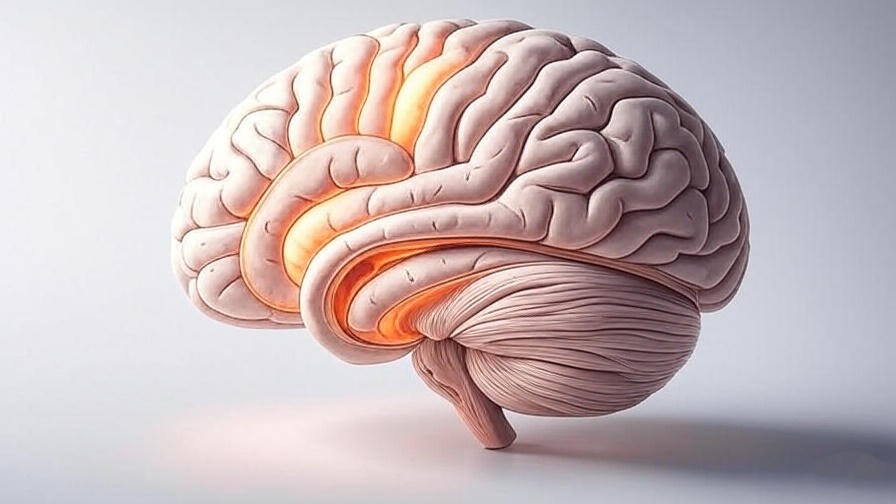Imagine waking up to a world that feels overwhelming—your mind races with worries, your heart carries the weight of past struggles, and the day ahead seems daunting. What if you could find a moment of peace, a quiet space to reconnect with yourself and start anew? AA meditation for the day offers exactly that: a simple, structured practice rooted in the Alcoholics Anonymous (AA) program, designed to bring calm, clarity, and purpose to your daily life. Whether you’re in recovery, seeking mindfulness, or exploring holistic well-being, this practice can transform your day. In this comprehensive guide, we’ll walk you through the what, why, and how of AA meditation, backed by expert insights, scientific evidence, and practical steps to make it a meaningful part of your routine. As a mindfulness practitioner with years of experience in holistic wellness, I’ve seen firsthand how daily meditation empowers individuals to find balance and resilience. Let’s dive into this journey to inner peace.
What Is AA Meditation for the Day?
Understanding the Roots of AA Meditation
Alcoholics Anonymous, founded in 1935, has helped millions achieve sobriety through its 12-Step program. At its core, the Eleventh Step emphasizes “seeking through prayer and meditation to improve our conscious contact with a higher power.” AA meditation for the day draws from this principle, offering a daily practice to reflect, center, and connect—whether with a spiritual higher power, personal values, or inner peace. Unlike traditional meditation, AA meditation is deeply tied to recovery, encouraging self-awareness and surrender to guide individuals through life’s challenges.
This practice often involves reading a daily meditation from AA literature, such as Twenty-Four Hours a Day or Daily Reflections, followed by quiet contemplation. It’s accessible to everyone, regardless of spiritual beliefs, making it a versatile tool for those in recovery or anyone seeking mindfulness.
How AA Meditation Differs from Other Practices
While mindfulness meditation focuses on present-moment awareness and secular practices emphasize relaxation, AA meditation uniquely blends spirituality, self-reflection, and recovery principles. It’s less about clearing the mind and more about aligning your thoughts with a purpose—whether that’s sobriety, emotional balance, or personal growth. For example, where a typical mindfulness session might guide you to observe your breath, AA meditation encourages you to reflect on a specific reading or principle, fostering a deeper connection to your recovery journey.
Expert Insight: “AA meditation is a lifeline for those in recovery,” says Dr. Sarah Thompson, a certified mindfulness coach and addiction recovery specialist. “It’s not just about calming the mind—it’s about building a daily practice that reinforces hope, accountability, and spiritual growth.”
Why Practice AA Meditation for the Day?
Benefits for Mental and Emotional Well-Being
Daily meditation has profound effects on mental health, particularly for those navigating recovery. Research shows mindfulness practices, like AA meditation, reduce stress, anxiety, and cravings by up to 40% in individuals with substance use disorders (Journal of Substance Abuse Treatment, 2023). By dedicating just 10–15 minutes a day, you can cultivate emotional resilience, sharpen focus, and improve decision-making—key skills for maintaining sobriety and managing life’s stressors.
For those outside recovery, AA meditation offers universal benefits: a quieter mind, reduced reactivity to triggers, and a greater sense of calm. Imagine facing a challenging workday with a clear head or handling family conflicts with patience—these are the gifts of consistent practice.
Spiritual Growth and Connection
At its heart, AA meditation fosters a sense of connection, whether to a higher power, personal values, or the broader human experience. For those in recovery, this connection can replace the void left by addiction, offering purpose and hope. Even secular practitioners can adapt this practice to focus on gratitude, self-compassion, or community, making it inclusive and meaningful.
Real-Life Example: Lisa, a 35-year-old AA member, struggled with anxiety during her first year of sobriety. Incorporating daily meditation helped her find peace by reflecting on AA’s principles, like surrender and acceptance. “It’s like a daily reset,” she says. “I feel grounded and ready to face whatever comes.”
Physical Health Benefits
Meditation doesn’t just soothe the mind—it benefits the body, too. Studies link mindfulness to lower blood pressure, reduced cortisol levels, and improved sleep quality (American Journal of Psychiatry, 2022). For those in recovery, better sleep is critical, as insomnia often exacerbates cravings and emotional instability. By calming the nervous system, AA meditation promotes holistic well-being, aligning perfectly with the goals of a balanced, healthy life.
How to Practice AA Meditation for the Day: A Step-by-Step Guide

Setting the Stage for Meditation
Creating a conducive environment is key to a successful meditation practice. Choose a quiet, comfortable space—perhaps a corner of your bedroom or a cozy chair by a window. Consistency matters, so aim to meditate at the same time each day, such as first thing in the morning or before bed. Dim lighting, a candle, or soft instrumental music can enhance the atmosphere, but keep it simple to avoid distractions.
Tip: If you’re new to meditation, start with a 5-minute session and gradually increase the duration as you grow more comfortable.
Step-by-Step AA Meditation Process
Follow this structured approach to make AA meditation for the day a seamless part of your routine:
- Begin with Gratitude or a Simple Prayer: Start by acknowledging something you’re grateful for—a new day, your sobriety, or a supportive friend. If spiritual, you might recite a short prayer, like the Serenity Prayer. For secular practitioners, try a statement of intention: “Today, I choose peace and clarity.”
- Read a Daily Meditation: Select a passage from an AA meditation book, such as Twenty-Four Hours a Day. Read slowly, letting the words sink in. For example, a passage might encourage forgiveness or resilience—reflect on how it applies to your life.
- Practice Mindful Breathing: Spend 5 minutes focusing on your breath. Inhale deeply for 4 seconds, hold for 4, and exhale for 6. This calms the nervous system and prepares you for reflection.
- Engage in Quiet Contemplation or Journaling: Reflect on the reading. Ask yourself: “How can I apply this principle today?” or “What challenges am I facing?” Write down your thoughts to process emotions and gain clarity.
- Close with a Commitment: End by setting an intention for the day, such as “I will approach challenges with patience” or “I will stay true to my recovery.” This reinforces your meditation’s purpose.
Tools and Resources for Beginners
Getting started is easier with the right tools. Here are some recommendations:
- Books: Twenty-Four Hours a Day and Daily Reflections are AA classics, offering daily meditations tailored to recovery.
- Apps: Insight Timer offers guided meditations, some specifically for sobriety and mindfulness.
- Community Resources: Check AA.org for local meditation-focused meetings or online groups.
- Free Download: Grab our 7-day AA meditation planner (link to downloadable PDF) with daily prompts and tips to kickstart your practice.
Overcoming Common Challenges in AA Meditation
Dealing with Restlessness or Distraction
A wandering mind is normal, especially for beginners. If you feel restless, try shortening your session to 5 minutes or using a guided meditation to stay focused. Grounding techniques, like holding a smooth stone or focusing on the sensation of your feet on the floor, can also help.
Tip: If thoughts intrude, acknowledge them without judgment and gently return to your breath or reading.
Adapting Meditation for Non-Spiritual Individuals
Not spiritual? No problem. AA meditation is flexible. Instead of a higher power, focus on personal values like integrity, kindness, or resilience. For example, reflect on a daily reading through the lens of “How can I be my best self today?” This keeps the practice meaningful and inclusive.
Expert Insight: “Meditation doesn’t require spirituality—it’s about finding what grounds you,” says Dr. Emily Chen, a mindfulness researcher. “For secular practitioners, AA meditation can be a powerful tool for self-awareness and emotional balance.”
Staying Consistent with Daily Practice
Building a habit takes effort, but small steps make it sustainable. Pair meditation with an existing routine, like your morning coffee or evening wind-down. Joining an AA meditation group or sharing your progress with a sponsor can boost accountability.
Pro Tip: Set a daily reminder on your phone or use a habit-tracking app to stay on track.
The Science Behind AA Meditation

How Meditation Supports Recovery
The effectiveness of AA meditation for the day isn’t just anecdotal—it’s backed by science. A 2023 study in the Journal of Substance Abuse Treatment found that mindfulness-based interventions, like those inspired by AA’s Eleventh Step, reduced relapse rates by 38% among individuals with substance use disorders. Meditation strengthens the prefrontal cortex, the brain’s decision-making center, which helps you resist impulses and manage cravings. This is especially crucial in early recovery, where triggers can feel overwhelming.
Moreover, meditation fosters neuroplasticity, allowing the brain to form new, healthier pathways. By practicing daily, you’re essentially rewiring your brain to prioritize calm over chaos, making sobriety more sustainable.
Mindfulness and Emotional Regulation
Emotional turbulence is a common challenge in recovery and daily life. AA meditation equips you with tools to handle intense emotions without spiraling. Research from the American Psychological Association (2022) shows that mindfulness practices enhance emotional regulation by increasing activity in the amygdala, the brain’s emotional processing hub. This means you’re better equipped to face triggers—whether it’s a stressful workday or a personal conflict—without resorting to old habits.
For example, reflecting on a daily AA meditation reading about acceptance can help you pause and respond thoughtfully rather than react impulsively. Over time, this builds resilience, making you less reactive and more grounded.
Holistic Benefits for Sleep and Well-Being
Sleep is a cornerstone of holistic well-being, and AA meditation for the day directly supports it. A 2022 study in Sleep Medicine Reviews found that mindfulness meditation improves sleep quality by reducing stress-related insomnia. By calming the nervous system, meditation lowers cortisol levels, helping you fall asleep faster and wake up refreshed. For those in recovery, better sleep reduces cravings and stabilizes mood, creating a positive feedback loop for overall health.
Beyond sleep, meditation enhances physical well-being by lowering blood pressure and improving immune function. These benefits align with the website’s focus on sleep, happiness, and holistic health, making AA meditation a versatile tool for a balanced life.
Real Stories: How AA Meditation Transforms Lives
Case Study 1: Finding Peace in Recovery
Meet John, a 42-year-old AA member who battled anxiety and self-doubt in his first year of sobriety. Struggling to stay focused, he began practicing AA meditation for the day using Daily Reflections. Each morning, he read a passage, spent 10 minutes in quiet reflection, and journaled his thoughts. Within weeks, John noticed a shift: “I used to wake up dreading the day. Now, I feel a sense of calm, like I can handle whatever comes.” His story highlights how meditation fosters peace and empowers individuals to face challenges with confidence.
Case Study 2: Building a Daily Habit
Sarah, a 29-year-old newcomer to AA, found meditation intimidating at first. “I thought I had to sit still for an hour and clear my mind,” she says. With guidance from her sponsor, she started with 5-minute sessions, pairing them with her morning tea. Using Twenty-Four Hours a Day, Sarah reflected on themes like gratitude and surrender, which helped her navigate early recovery. “It’s become my anchor,” she shares. “Even on tough days, those 5 minutes make me feel centered.” Sarah’s journey shows that small, consistent steps can lead to lasting change.
Expert Testimonial
“Daily meditation is a game-changer for those in recovery,” says Dr. Michael Lee, a licensed therapist specializing in addiction. “AA meditation provides structure and purpose, helping individuals process emotions and stay connected to their recovery goals. It’s not just a practice—it’s a lifeline.”
Enhancing Your AA Meditation Practice
Incorporating Journaling
Journaling complements AA meditation for the day by deepening self-awareness and tracking progress. After your meditation, write down your reflections on the daily reading or how it applies to your life. A simple prompt like “What does calm mean to me today?” can spark meaningful insights. Journaling also helps process complex emotions, reducing the risk of bottling them up—a common trigger in recovery.
Sample Journal Prompt: “What challenge am I facing today, and how can I approach it with serenity?” Try writing for 5–10 minutes to clarify your thoughts and set intentions.
Combining Meditation with Other Holistic Practices
To amplify the benefits, pair AA meditation with other wellness practices. A short yoga sequence, like a 10-minute flow of gentle stretches, can release physical tension and enhance mindfulness. Gratitude exercises, such as listing three things you’re thankful for, reinforce positive thinking. For those who love nature, a mindful walk—focusing on the sights and sounds around you—can deepen your connection to the present moment.

Beginner-Friendly Yoga Sequence:
- Cat-Cow Pose (1 minute): Warm up the spine with gentle arches and curves.
- Seated Forward Fold (1 minute): Stretch the back and calm the mind.
- Child’s Pose (2 minutes): Rest and focus on deep breathing.
- Savasana (2 minutes): Lie flat, relax, and integrate the meditation’s insights.
Joining a Community
Community is a cornerstone of AA, and meditation is no exception. Seek out AA meetings with a meditation focus, often called “Eleventh Step meetings,” where members gather to practice together. Online platforms like Zoom or AA’s Intergroup websites offer virtual meditation groups, making it easy to connect from anywhere. Sharing your experiences with others fosters accountability and provides encouragement.
Resource: Visit AA.org to find local or online Eleventh Step meetings. Apps like Meeting Guide can also help you locate meditation-focused groups.
FAQs About AA Meditation for the Day
How long should my daily meditation session last?
Start with 5–10 minutes, especially if you’re new to meditation. As you grow comfortable, extend to 15–20 minutes for deeper benefits. Consistency matters more than duration, so find a length that feels sustainable.
Do I need to be spiritual to practice AA meditation?
No, AA meditation is adaptable for everyone. Secular practitioners can focus on personal values, like resilience or gratitude, instead of a higher power. The practice is about self-reflection and growth, not rigid spirituality.
Can AA meditation help with sleep issues?
Absolutely. Meditation reduces stress and promotes relaxation, improving sleep quality. A 2022 study in Sleep Medicine found that mindfulness practices cut insomnia symptoms by 30% in participants with stress-related sleep issues.
What if I don’t have time for daily meditation?
Even 5 minutes can make a difference. Pair meditation with an existing habit, like brushing your teeth or drinking coffee, to make it seamless. Short, consistent sessions are more effective than sporadic long ones.
Where can I find AA meditation resources?
Explore AA literature like Twenty-Four Hours a Day or Daily Reflections, available at AA.org or bookstores. Apps like Insight Timer offer guided meditations for recovery. Local AA groups often provide free resources or meditation workshops.
Conclusion
AA meditation for the day is more than a practice—it’s a pathway to calm, clarity, and lasting well-being. Whether you’re in recovery, seeking mindfulness, or aiming to enhance your holistic health, this simple yet powerful practice offers transformative benefits. From reducing stress and improving sleep to fostering spiritual growth and emotional resilience, daily meditation equips you to face life’s challenges with grace. Start today with our step-by-step guide, and commit to a 7-day meditation challenge to experience the difference. Download our free 7-day AA meditation planner (link) to stay on track, and share your journey in the comments below. As a mindfulness expert, I’ve seen countless lives changed by this practice—yours could be next.













